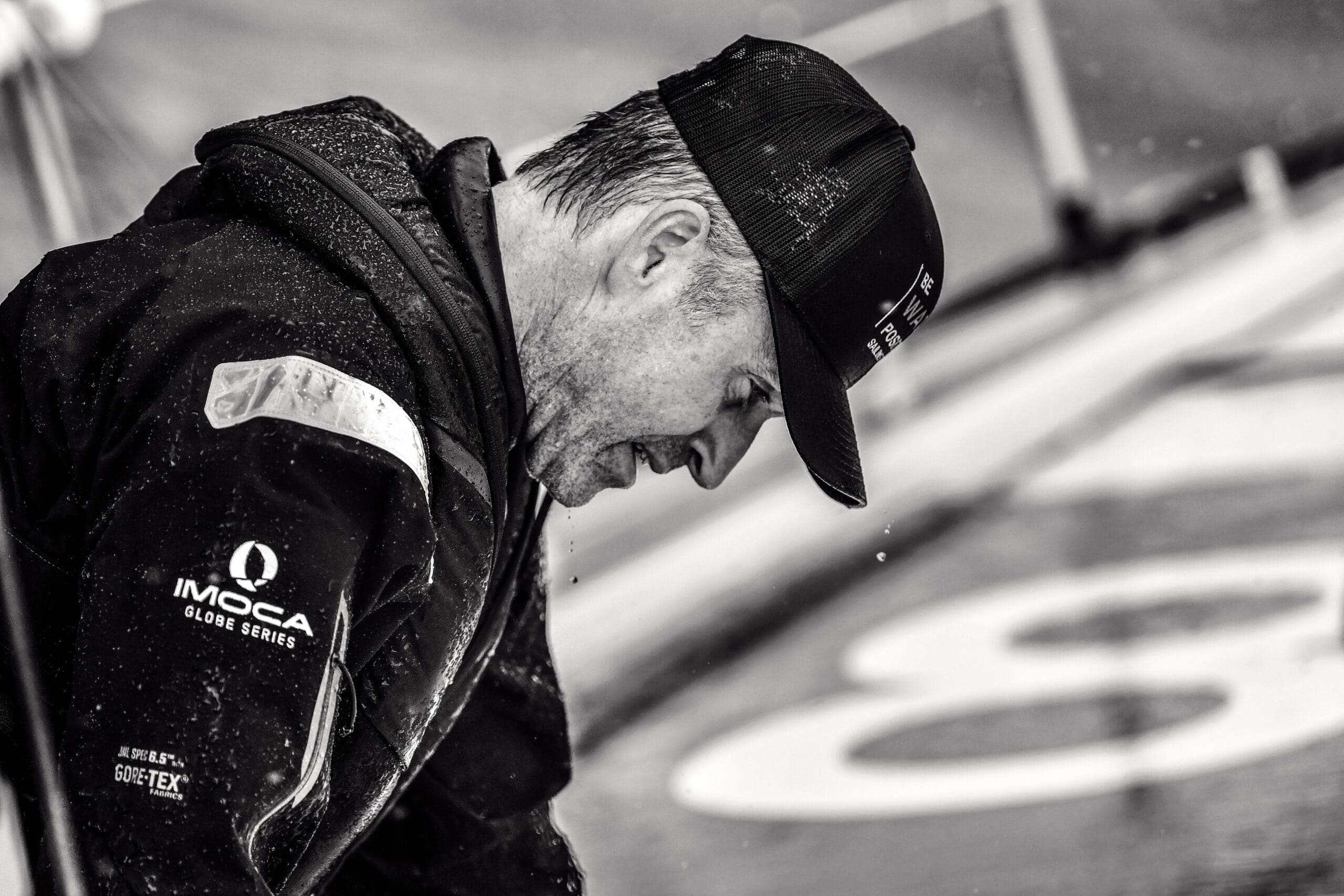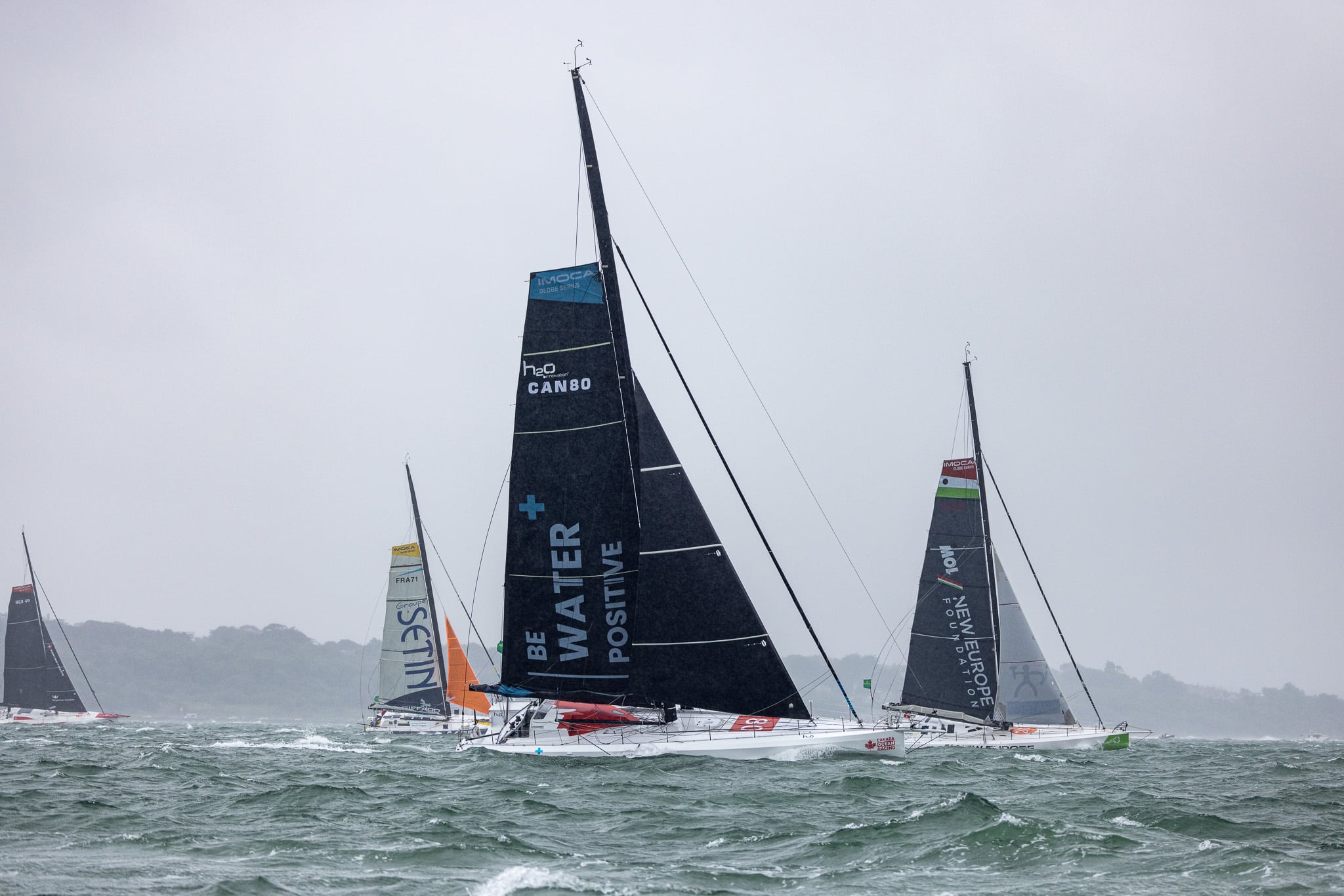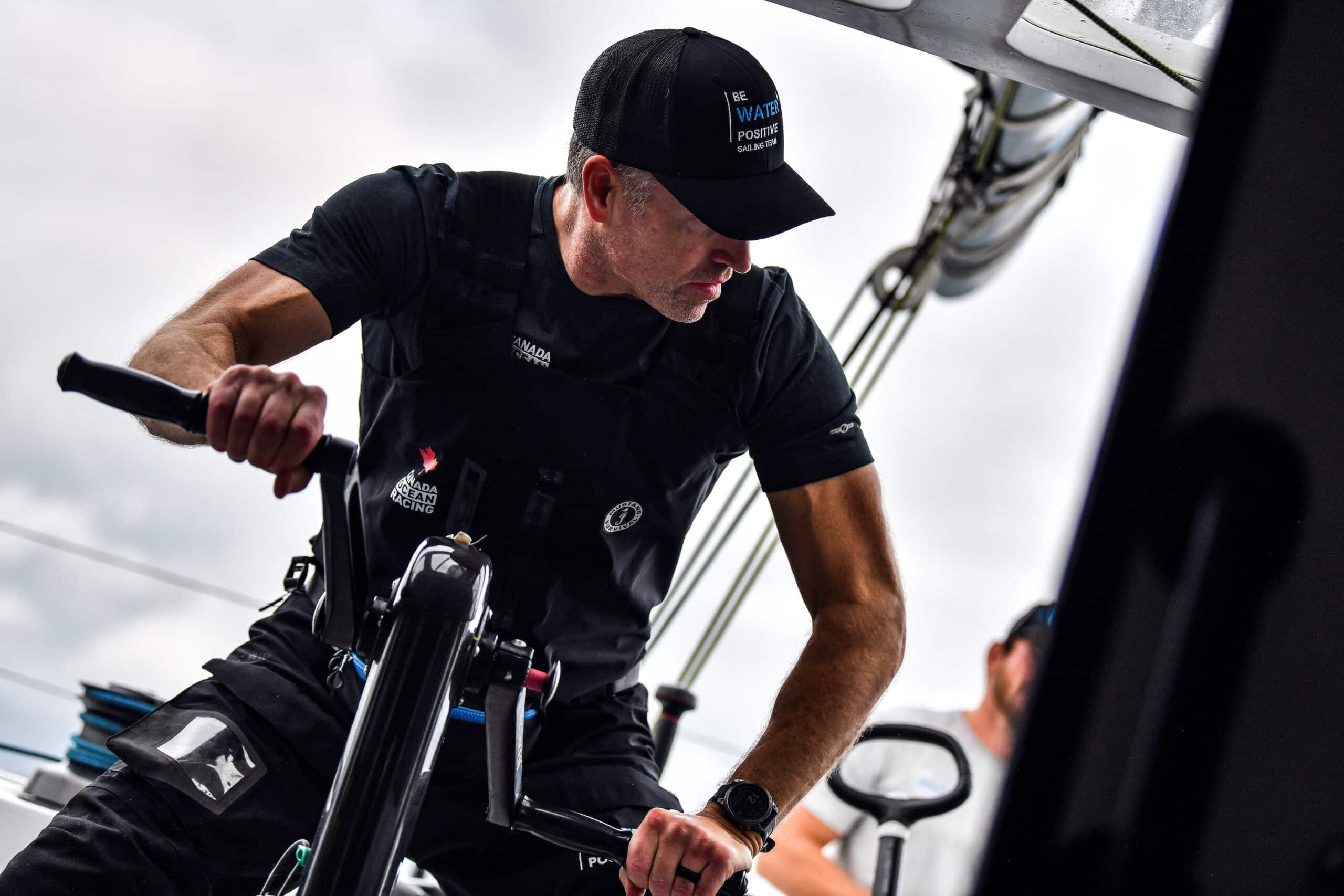
08 Feb Navigating Rough Waters: A Sailor’s Battle with Seasickness
Navigating Rough Waters: A Sailor’s Battle with Seasickness
In the darkness, in the teeth of a gale ahead of a powerful cold front, I find myself desperate for reprieve as I spiral deeper into a state of horrendous nausea. My 60-foot carbon-fibre racing yacht, under autopilot, is plowing through huge seas, locked in and without mercy. My double-handed sailing partner is below, trying to rest ahead of his turn to stand his watch. We are rolling through a system of 90 minutes on deck and 90 minutes below, protected from the relentless spray and November chill in the English Channel. My body has been gradually failing me since nightfall, and I am losing a war with my mind. I now lie on the cockpit floor, with waves breaking around me and the residual water flushing past my body. I am so ill; I have now been vomiting for hours, so much that I am drained. My stomach is empty, but the retching continues, straining every fiber of my being. I can’t seem to relax my muscles enough to pee and the pressure on my bladder is amplified by this horrid motion and every hard landing over every wave. No matter how desperately I want this to stop, I know that there is no chance of any reprieve for at least another 48 hours.
It is night one of the Transat Jacques Vabre Double-Handed Yacht Race, a 15-day race from France to Martinique and I find myself in a state of desperation inside the first 24 hours. I am prone to seasickness; I have never hidden this nor shied away from the tag. If you suffer or have suffered from motion or seasickness, then you are my tribe. Strangely, I have not only chosen to chase goals in the field of oceanic and endurance yacht racing, I am ultimately on a quest to become the first Canadian to sail non-stop around the world, solo and unassisted in the adventure sailing pinnacle, the Vendee Globe. I know seasickness and this is not my first transatlantic yacht race, having established the double-handed course record in the Royal Ocean Racing Club Transatlantic Race earlier in 2023. But the illness that was currently debilitating me felt like more than seasickness, and this was a very clear concern.
Offshore yacht racing has exposed me to an incredibly high sense of remoteness and vulnerability. This can hold great beauty but it can also induce intense fear. In the moment, the element of exposure is weighing heavily on my mind. We are fighting through the storm front and hoping that by dawn we will break free of the shipping lanes and head south towards milder weather. But every mile progressed is a mile further away from land and any real medical aid should I require it.
In the twilight of dawn, my sailing partner Nick and I complete our manoeuvre to head south, timed with a forecasted favourable wind shift. At this point, I am desperately angry with myself, with my body. My physical health is something that I work hard at always improving; at 52 years of age, I am fit and strong, but my strength, power, and energy have deserted me. It is clear to Nick that our situation is far from ideal. As if battling such an angry Mother Nature is not hard enough, we now have a worrying and escalating medical situation in the mix. After consulting with our medical team on shore, I take additional medication in an effort to stabilise my decline and stem the vomiting. Unfortunately, the medication seems to have the opposite effect. Ultimately the call is made to head to a port and seek professional assistance, and with that decision, we reluctantly peel away from the competition and the goal. Our race is over.

These decisions are never easy to make; our team worked incredibly hard to prepare the boat and ourselves for this race. The effort required to prepare the boat is simply massive. We have supporters that we do not want to let down, and we have sponsors who have not only invested in our project but have also bought into the longer-term dream and goal. In a strange way, this makes us feel less sorry for ourselves in the moment, yet in the aftermath comes huge waves of disappointment.
The aftermath also includes a deep dive debrief. What happened? Why were the symptoms and events so much more than I had previously experienced? We knew I was prone to seasickness and that the medication I was taking was marginally effective at best. But why was this event so severe? There were many things that we initially could not understand, and we knew that we needed to unravel these. We have now identified some potentially compounding aspects of my preparation that may have affected my health and energy balance leading up to the race. The findings are numerous, including having just recently recovered from my first bout of COVID, recent injections into my neck as a result of injuries sustained via my downhill ski racing past, and an unusual travel schedule the week before the race start due to the race being postponed.

So what now? Am I deterred by the experience? The answer is no. I love the learning process, and this sporting and adventure discipline has an endless list of learnings. We need to better manage all aspects of the project that we can influence or control at any level. If we take this particular situation in two parts, we can conclude that seasickness is one part and the external influences are another; together they overwhelmed me. It became clear that we needed to eliminate risks that are known to us, and this led to identifying changes to be made in race preparation and a huge focus on embracing every option to suppress or eliminate my seasickness. While we may have seemed to be quiet over the past few months, I have been painstakingly working on seasickness remedies and techniques, including the use of VR tools, varying medications and simulations. We are working on a document and a feature that will enable us to share the process in more detail with you soon. Follow our social channels and join our mailing list at canadaoceanracing.com and stay tuned for updates.
For those already following my campaign, you may know that I am at a point in my life where I am able and have the resources to kick start this enormous Vendee Globe goal with the aim of competing in the 2028 edition. While I am in a privileged position in that regard, ocean racing strips you bare. You hope that your life experiences will help you weather storms, make decisions that will help your performance but more importantly protect the boat and literally your life. You lean on people for support, emotional fuel, and for learnings, but you are ultimately worth nothing more than your own coping abilities and resilience. Perhaps this is a part of why I have chosen this particular challenge.
While our competitors’ boats have been in winter refit, we have temporarily moved the project from the UK to Portugal, where I have been training and trialing our preventative and protection tools, learning more about available medications, and putting these through their paces as I also work towards my next goal being the transatlantic solo race from New York (USA) to Vendee (France). My progress has been incredibly encouraging. Our January training block lined up for us to leave Cascais in horrible conditions. We spent three days sailing upwind to intersect with an unusually powerful storm for the region and time of year, which set us up for a fast and wild ride back to base. So far, I have been able to manage all conditions without succumbing to sickness and have even felt good for the most part. I am consistently reminded by the team that a big part of this discipline is becoming comfortable with the uncomfortable. By working on all components and focusing on resilience, I am happy, relieved and grateful for where we are today.
Thank you always for your support and encouragement. It provides me great fuel to keep forging ahead knowing you’re behind me!
Sincerely,
Scott.


